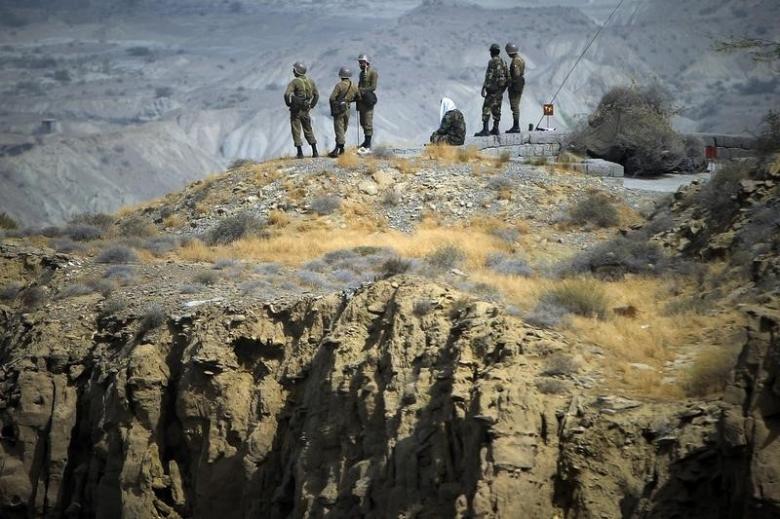It is ironic how roles have been reversed in Syria whereby the conflict has moved to Syria and regime in Damascus is living under the watch of Lebanese militias.
We consider Hezbollah militias Lebanese forces, and they are indeed so. In fact, they consider themselves equivalent to the Lebanese army and internal security forces.
This situation brings back to memory the times of popular Lebanese demands and international calls for the withdrawal of Syrian forces from Lebanon.
The withdrawal of Hezbollah and other forces and militias from Syria is at the core of the talks between Russian and the US governments as part of the discussion to find a peaceful solution to the Syrian crisis.
The US wants to end the presence of any foreign armed forces supporting the Syrian regime, mainly the Iranian Revolutionary Guard Corps (IRGC), Lebanon’s Hezbollah and other Iraqi, Pakistani and Afghani militias.
The Syrian regime occupied Lebanon on the pretenses of fighting Israel. The Lebanese people did not believe Damascus’ justifications, because they witnessed the hegemony of the regime and its interference in the details of their daily lives. Arabs believed the “propaganda” until the civil war erupted in Syria.
On a peaceful solution for the Syrian revolution, Washington had in principle said it accepts the Russian plan to politically end the struggle, regardless whether Bashar al-Assad remains in power or not.
The regime then however committed a major mistake by striking Khan Sheikhun with chemical weapons. It did not even have to do so because it already kills on a daily basis with strikes and barrel bombs.
The strike was a challenge to the US administration and it proved true the declarations of Damascus’s opponents who had stated that the regime and its allies will not commit to any political pledges and that the “agenda” goes beyond Syria.
In their latest statements, US officials raised the bar of their demands. They want Assad out of power and they demanded the extraction of Iranian, Lebanese and other militias from Syria. Their number is estimated to be 50,000.
This means that the upcoming focus will actually be on the second point, which is the extraction of non-Syrian troops from the country, with maybe the exclusion of Russia.
The US will later discover that it is easier to remove Assad from power than achieve the withdrawal of Iran’s Quds Force and Lebanese Hezbollah, who are well-settled in Syrian territories now.
I do not think Hezbollah is happy with the job assigned to it by Iran, which is demanding it to fight in Syria. There are several reasons it is not happy, the main one is that it has depleted its forces and it has lost more men in Syria than it did in 30 years of wars with Israel.
In Lebanon, Hezbollah is in a tough spot because of its interference in the conflict that led to the displacement of one and a half million Syrian refugees to Lebanon.
Hezbollah has also been weakened militarily because it has been involved in the war in Syria for three years, which will also have ramifications on its power inside Lebanon.
But the decision to send the Hezbollah’s militias to war was an Iranian one, like the other affiliated militias in Iraq. Tehran decides and negotiates and the party will not be part of the withdrawal negotiations in the future.
The challenge will be for Assad to remove 50,000 fighters from Syria under the supervision of the IRGC. I think this would be mission impossible.
Russia is aware that it does not have the final word in Damascus despite its military interference that tipped the balance in Assad’s favor.
Sources agree that Iran is the main decision-maker in Damascus and it had sought during the war to gain control over the Syrian state, including its security and military apparatuses.
The real challenge for the international community is to remove the various Iranian forces from Syria. Withdrawing the “Lebanese forces” from Syria has now replaced the withdrawal of Syrian troops from Lebanon. We do not know how or when that will happen because the Iranian project in the region includes Lebanon and Iraq and the Iranian leadership considers Syria a necessary link to control those two countries and not Syria itself.
